A company’s success depends on mastering its financial resources. While nearly every company must tightly control its assets, liabilities, revenue, and cash flow, these accounting processes are vital for small and medium-sized enterprises (SMEs) expanding with thin margins.
When appropriately managed, financial accounting can keep business leaders on the pulse as they create budgets, monitor company expenses, and identify new avenues for growth. However, achieving this can be daunting without a well-planned, executed, and executed accounting strategy. While the specifics of each financial planner will vary depending on the business and its position in the industry, here are five best accounting practices you should apply.
Cover the basics
Are you a small business owner just starting with bookkeeping? If so, here are some key points you can apply to create a solid accounting foundation. This includes:
Choose an accounting method. Most companies will choose a cash or accrual basis. There are major differences between the two procedures; for example, the accrual method records revenue when a product or service is delivered rather than when it is paid, which provides greater insight into the company’s financial health. In contrast, cash basis only counts cash received.
Track cash flow. You must constantly monitor your cash flow to have proper control and visibility over your company and its development. All expense outflows and income streams must be recorded, cataloged, and categorized.
Separate personal and work expenses. Some early-stage companies need to make sure personal finances are clear with company finances. Doing so can make it difficult to judge the company’s financial situation correctly and could jeopardize your limited liability. Separating the two improves cash flow tracking, tax filings, and financial forecasting.
Use accounting software
Early in a company’s lifecycle, you may be tempted to limit bookkeeping costs using physical ledgers or essential digital tools like Excel. Do not do this; avoid temptation. Of all the places a business should be looking for cost savings, this isn’t one of them. However, early adoption of accounting software will help you prepare when things aren’t so easy. Cloud-based accounting software reduces costly manual errors, ensures records are always accurate and up-to-date, simplifies tax filings, speeds up month-to-month closing, and, most importantly, provides powerful analytical tools that generate actionable insights.
Few investments can deliver a significant return on investment for just a few dollars a month. While there are dozens of accounting software options, the best introductory options include QuickBooks, Xero, and Gusto. Later, as your company expands, you can upgrade to a more robust enterprise suite like NetSuite or Sage Intacct.
Master the three primary financial statements.
The importance of keeping accurate financial records and reviewing them regularly goes beyond tax preparation. It sets you up for financial health and long-term success. Even if you don’t have to comply with GAAP, early adherence to these principles will set you up for success in financial reporting and modeling.
This brings us to financial statements, which aggregate your financial data into actionable intelligence. As noted by Inc.: “They represent one of the primary yet fundamental components of business information and are the primary method of communicating accounting information about an entity to external parties.”
Specifically, business leaders must master three financial statements:
Balance Sheet: A quick snapshot of a company’s net worth at a given time. It measures assets, penalties, and shareholder equity.
Profit/Loss Statement: The Profit/Loss Statement (P&L) shows how a company’s net income or loss has grown over a specified period.
Statement of Cash Flows: Measures cash inflows and outflows over a specified period. It lets you know how much cash you have available during that time.
Hire accounting experts.
As companies expand, business leaders eventually reach a point where maintaining accurate accounting records becomes too complex and time-consuming, even with accounting software. At this point, it is necessary to hire an expert accounting service in Dubai whose sole job is to record, organize and analyze the company’s financial records.
By hiring an in-house professional accountant or outsourcing the services of an accountant, you gain access to knowledgeable professionals who can:
- Manage financial and compliance audits,
- Prepare financial data and reports,
- Detail and analyze the company’s financial situation,
- Set achievable goals,
- Weigh and advise on growth strategies.
As the company grows, so does the accounting department. Counter one becomes two, three, and so on. Ultimately, you need a finance director to oversee that team and a chief financial officer to guide the financial journey of the business. These are just healthy steps a growing business must inevitably take to thrive.
Take control of your book.
There are countless obstacles and problems in building a thriving business. However, maintaining tight control over your accounting operations allows you to prepare, strategize, and weather any storm that comes your way.
Following the tips above is just the beginning of what you must do. But it’s a good start. The complexity of documentation, analysis, compliance, and financial reporting increases as your business grows. Mastering best accounting practices ensure that these factors do not jeopardize your future success.
Final Thoughts
Digital capabilities are critical to the accountancy profession. But as technology makes entry-level tasks more accessible and complex, accountants need a skill set beyond the basics. Accountants today require technical prowess, business acumen, and people skills far more than their past peers. If you prefer a completely different approach to accounting and bookkeeping, VVAS may be for you. Connect your business bank accounts so your accountant automatically imports, categorizes, and reviews transactions. Communication is fast and reliable; VVAS allows you to message the bookkeeper directly or schedule a call to discuss any financial issues that may arise. Our services even include tax filing and fully automating all accounting tasks.
